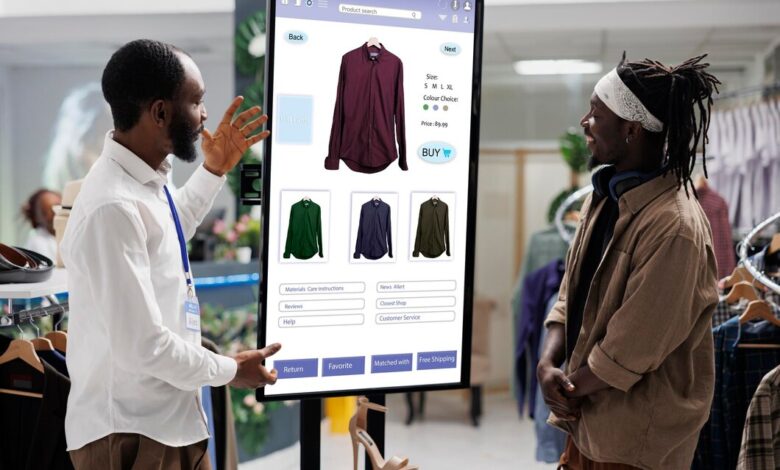10 Ways South African SMEs Can Use Augmented Reality for Marketing

In a world where digital experiences are transforming how businesses connect with their customers, augmented reality (AR) is emerging as a powerful marketing tool. For small and medium enterprises (SMEs) in South Africa, AR provides an innovative way to engage audiences, differentiate from competitors, and offer interactive experiences that capture attention. Here are ten ways South African SMEs can leverage augmented reality for marketing.
1. Interactive Product Demos
SMEs can use AR to give potential customers an immersive, hands-on experience with their products. For example, furniture companies can allow users to place virtual items in their homes to see how they fit and look. This reduces the hesitation some customers have before making purchases and enhances confidence in their buying decisions.
2. Virtual Try-Ons for Fashion
For clothing and accessory retailers, AR offers a convenient way for customers to “try on” items virtually before committing to a purchase. Apps can allow users to see how clothing fits, how a pair of glasses looks on their face, or how jewelry complements their style. This kind of interactivity reduces returns and increases customer satisfaction.
3. AR-Powered Packaging
SMEs in the food, beverage, and retail industries can embed AR features into product packaging. Customers can scan a label or product with their smartphone and instantly view additional content like videos, recipes, or promotional offers. This adds value to the customer experience and encourages brand loyalty.
4. Gamification and Contests
AR can bring a playful and competitive edge to SME marketing strategies. Companies can create AR games or contests where users have to complete tasks or collect virtual items using their smartphones. These experiences keep customers engaged and can be used to promote new products or services in a fun and memorable way.
5. Enhanced Customer Engagement in Retail
For brick-and-mortar stores, AR apps can enrich the in-store experience. Customers can scan products for more information, special promotions, or customer reviews. This technology helps SMEs bridge the gap between physical and digital shopping, offering a more seamless experience for the tech-savvy consumer.
6. Location-Based AR Experiences
Tourism, hospitality, and event-related SMEs can use location-based AR to enhance the experience at physical locations. For example, restaurants can create an AR menu where customers can see a 3D visualization of dishes before ordering, or tourist attractions can use AR to offer historical facts and information overlaid on real-world locations.
7. Social Media AR Filters
AR filters have taken social media by storm, and South African SMEs can tap into this trend by creating branded AR filters for platforms like Instagram and Snapchat. These filters can be related to a product launch, seasonal promotion, or brand identity, allowing users to interact with the brand in a fun and shareable way, increasing reach and engagement.
8. Virtual Pop-Up Stores
SMEs can leverage AR to create virtual pop-up stores, offering customers a unique and immersive shopping experience without the need for a physical space. These AR pop-up stores can be accessed via mobile apps, allowing users to browse products, try them out virtually, and complete purchases, providing a novel and engaging way to shop.
9. AR for Events and Exhibitions
At trade shows, conferences, or product launches, AR can make a brand stand out. SMEs can use AR to enhance their stalls by offering interactive product demonstrations, creating virtual tours of their services, or letting attendees engage with 3D models and animations. This tech-savvy approach leaves a lasting impression on event-goers and potential clients.
10. AR in Digital Advertising
SMEs can incorporate AR into their digital advertising efforts, creating more interactive and dynamic ads. For example, an AR ad could allow users to visualize how a product works or what it looks like in their own space. These ads create higher engagement rates than traditional ads, offering a memorable brand experience.
Augmented reality offers South African SMEs an exciting opportunity to elevate their marketing strategies, connect with customers in new ways, and provide experiences that engage and inspire. From virtual try-ons to AR-powered packaging and gamified contests, SMEs can harness AR to stay competitive in a fast-evolving market. By incorporating AR into their marketing efforts, businesses can build stronger relationships with customers, increase brand visibility, and ultimately drive sales in a highly interactive and engaging way.




